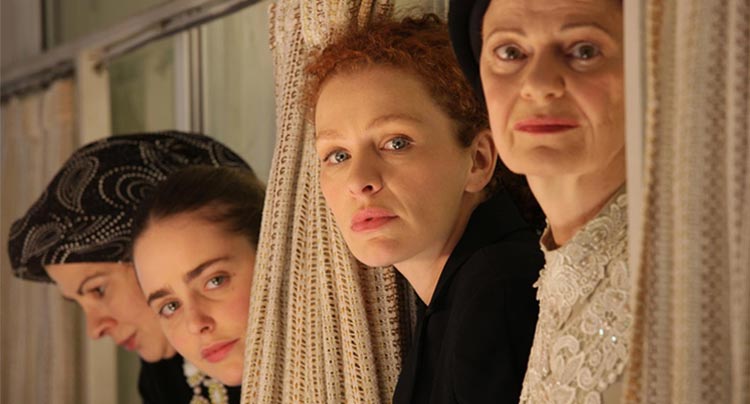
It’s the subtlety that sells the romance and the pacing makes the end that much sweeter.

It’s the subtlety that sells the romance and the pacing makes the end that much sweeter.
Turning 18 means different things in different cultures, but almost every culture agrees it’s an age of adulthood. In the religious culture of Orthodox Judaism, at 18 a young woman is preparing for the important ritual of marriage – and wondering whom her family will choose for her to end up with. This is the scenario Shira (Hadas Yaron) is in at the beginning of Fill the Void. She and her mother, Rivka, (Irit Sheleg) stalk a young man in the grocery store, watching him for signs of whether he’d make a good match. The sort of silly cultural scenario one would find in a Jane Austen story. Fill the Void is definitely the sort of romance that would have Ms. Austen entertained. Drawing on universal concepts of love, choice, heartache and duty, the perspective of the film within the Hasidic community at no point seems too narrow as to alienate it’s western audience. Instead, the insulated cultural setting only enhances the nuances of romance making every minor touch, every hushed encounter that much more thrilling.
When Shira’s sister Esther dies suddenly in childbirth, the entire family is devastated at the loss. Caring for the child she left behind and coping with their grief, there is further disaster on the horizon when Rivka learns Esther’s widowed husband, Yochay (Yiftach Klein) is considering remarriage.
Desperate to keep her family together and seeing a potential love match, she proposes to Yochay that he consider young Shira. Hesitant at first, eventually Yochay can’t deny the desirability of such a situation, nor deny that Shira loves his child like a mother, even if she is quite young. Suddenly Shira is faced with the daunting choice of giving up the experience of “first love” or satisfying her mother by accepting Yochay’s marriage proposal. As she begins to try to see Yochay in a different light, she demonstrates the complexity of attraction and the hesitancy of the female heart.

Rama Burshtein, a first-time director and herself an Orthodox Jew, does an excellent job of nuancing the potentially antiquated situation Shira finds herself in. Shira, while young, is sensible and true to her own feelings and desires; determined to have the love she deserves. She grapples with the shadow of her sister and the prospect of being with the man who loved her, while simultaneously being introduced to what it feels like to be wanted and romanced. Audiences used to more flagrant flirtatious methods of wooing may find the story slow or unbelievable, but it’s the subtlety that sells the romance and the pacing makes the end that much sweeter.
In an age of progressive feminist ideals, Fill the Void could have easily been off-putting. Instead it envelops the viewer in a rich and vibrant culture that embraces the importance of chosen participation within tradition. With it’s shallowly focused lens, the film literally has a fairy tale glow to it. Burshtein has woven a beautiful film, compellingly providing insight into her own community, while gracefully revealing a delicate and unique romantic tale.